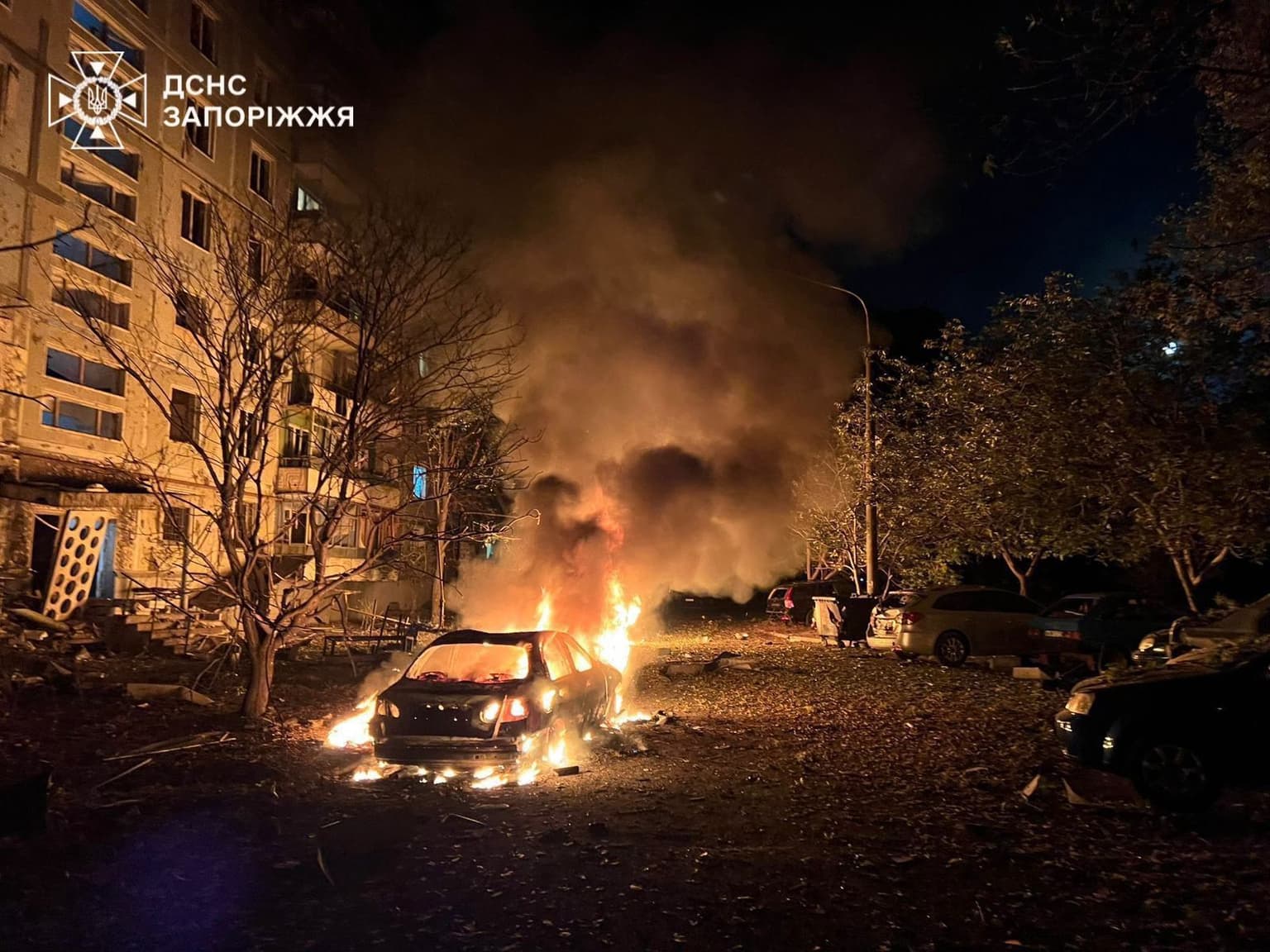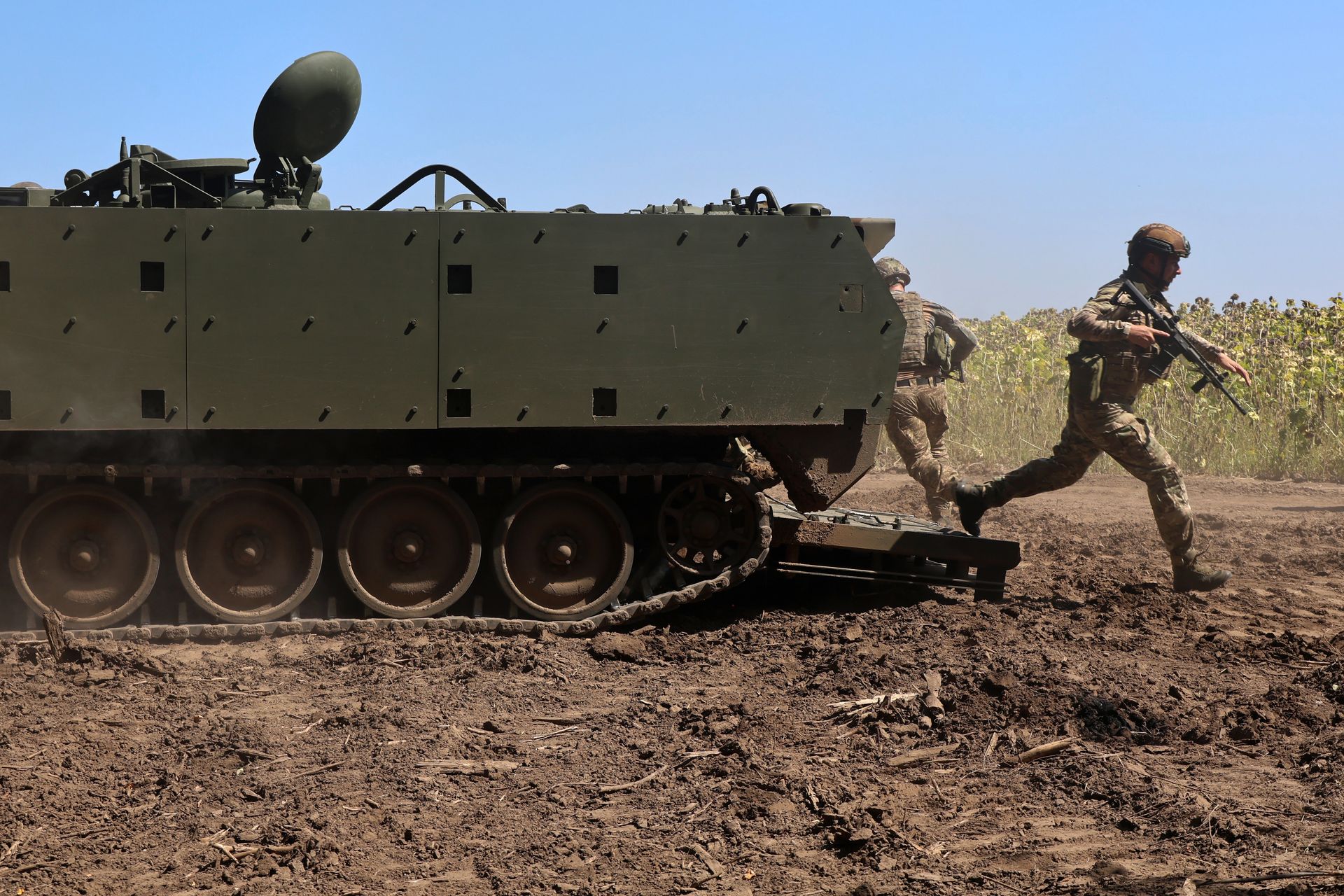Massive Russian attack on Ukraine kills 6, injures 18

Editor's note: This is a developing story and is being updated.
A large-scale Russian attack across Ukraine killed at least six people and injured at least 18 overnight on Oct. 5, according to the authorities.
Russia launched around 500 drones and more than 50 missiles, including Kinzhal ballistic missiles, targeting Lviv, Ivano-Frankivsk, Zaporizhzhia, Chernihiv, Sumy, Kharkiv, Kherson, Odesa, and Kirovohrad oblasts, President Volodymyr Zelensky wrote on Facebook.
He called on the U.S. and Europe to force Russia to agree to a truce in the sky.
"More protection is needed, faster implementation of all defense agreements, especially regarding air defense, to deprive this aerial terror of any meaning," Zelensky said. "A unilateral ceasefire in the sky is possible, and it could open the way to real diplomacy."
In an afternoon address to the nation, Zelensky said Russia is "laughing at the West" as allies fail to issue a strong response to the attack.
He called for stricter export controls after emphasizing that Western components still end up in Russian weapons. Zelensky added that 100,000 foreign-made components had been used in the latest drone attack, including from the U.K., U.S., Germany, and Switzerland.
Following the attacks, EU foreign policy chief Kaja Kallas wrote on social media platform X that Russia is using "terror attacks" on Ukrainian civilians and infrastructure to cover up its failed summer offensive. Brussels will continue to finalize the next sanctions package, ensure financing, and provide weapons, she added.
Lithuania's Foreign Minister Kestutis Budrys called for a total end of Russian oil and gas imports to Europe, writing on X that Europe is "feeding (Russia's) imperial appetite."
While only Hungary and Slovakia continue to import Russian oil, the EU is the largest buyer of Russian liquified natural gas, despite Brussels' pledge to wean itself off Russian energy by 2027.
While Ukraine's air defense downed 478 targets, eight missiles and 57 drones made it through with strikes across 20 locations, according to Ukraine's Air Force.
In Lviv Oblast, four people were killed, and another eight were injured, the head of the Lviv Regional Military Administration, Maksym Kozytskyi, wrote on Telegram. The four dead were from the same family, including a 15-year-old girl, the Lviv Regional Prosecutor's Office reported.
It was the largest attack on the region since the start of Russia's full-scale invasion, with 140 drones and 23 cruise missiles. Gas transportation infrastructure was one of the main targets as temperatures drop and the heating season nears, Kozytskyi said.
An industrial park caught fire during a missile and drone attack on the city of Lviv, Mayor Andriy Sadovyi wrote on Telegram. He assured that there were no military targets on the territory.
Two districts in Lviv don’t have power, and public transport has temporarily shut down due to the attack, Sadovyi said.
Chinese reconnaissance satellites also reportedly flew over Lviv during the attack, Militarnyi reported, though the outlet noted that "it is unknown whether these satellites conducted actual reconnaissance during their flights over Ukraine."
In the city of Zaporizhzhia, at least one was killed, and at least 10 were injured, Governor Ivan Fedorov wrote on Telegram.
Russian forces fired drones and aerial bombs at Zaporizhzhia, hitting an industrial enterprise and residential buildings, Fedorov wrote.
A major energy facility was also damaged, cutting off power to a "significant number" of consumers in the city and surrounding region, the Energy Ministry reported.
In Kherson, a 77-year-old man was killed by Russian shelling, Governor Oleksandr Prokudin reported.
In Vinnytsia, a Russian attack hit an industrial civilian facility, the Vinnytsya Regional Military Administration reported. There were no injuries.
Power supply in Sumy and Chernihiv oblasts remains unstable with hourly power outage schedules in effect, the Energy Ministry said.
Russian strikes also damaged gas facilities belonging to Naftogaz, Ukraine's state-owned energy giant, CEO Serhiy Koretskiy wrote on Facebook. "The terrorist attacks are aimed at only one thing – to deprive Ukrainians of gas, heat and light," he said.
Ukrainian energy experts told the Kyiv Independent last month that Russia will launch another campaign to decimate Ukraine's energy sector after wiping out half its power generation capacity last year. Sources close to the Kremlin also told Bloomberg that Moscow intends to attack Ukraine's energy sector this year.
While the Energy Ministry and companies have prepared for the attacks, Ukraine still doesn’t have the air defense capabilities to protect all its energy infrastructure.
Ukrainian cities could face hours of blackouts a day and no heating this winter, Olena Lapenko, General Manager for Security and Resilience at Dixi Group, a Ukrainian energy think tank, previously told the Kyiv Independent.
Ukraine and its European partners are discussing a "drone wall" air defense plan to protect the EU's eastern flank following recent drone incursions and to help Ukraine defend its airspace. The next round of talks is scheduled for Oct. 15 in Brussels, during a NATO defense ministers meeting, followed by an EU one as well.











